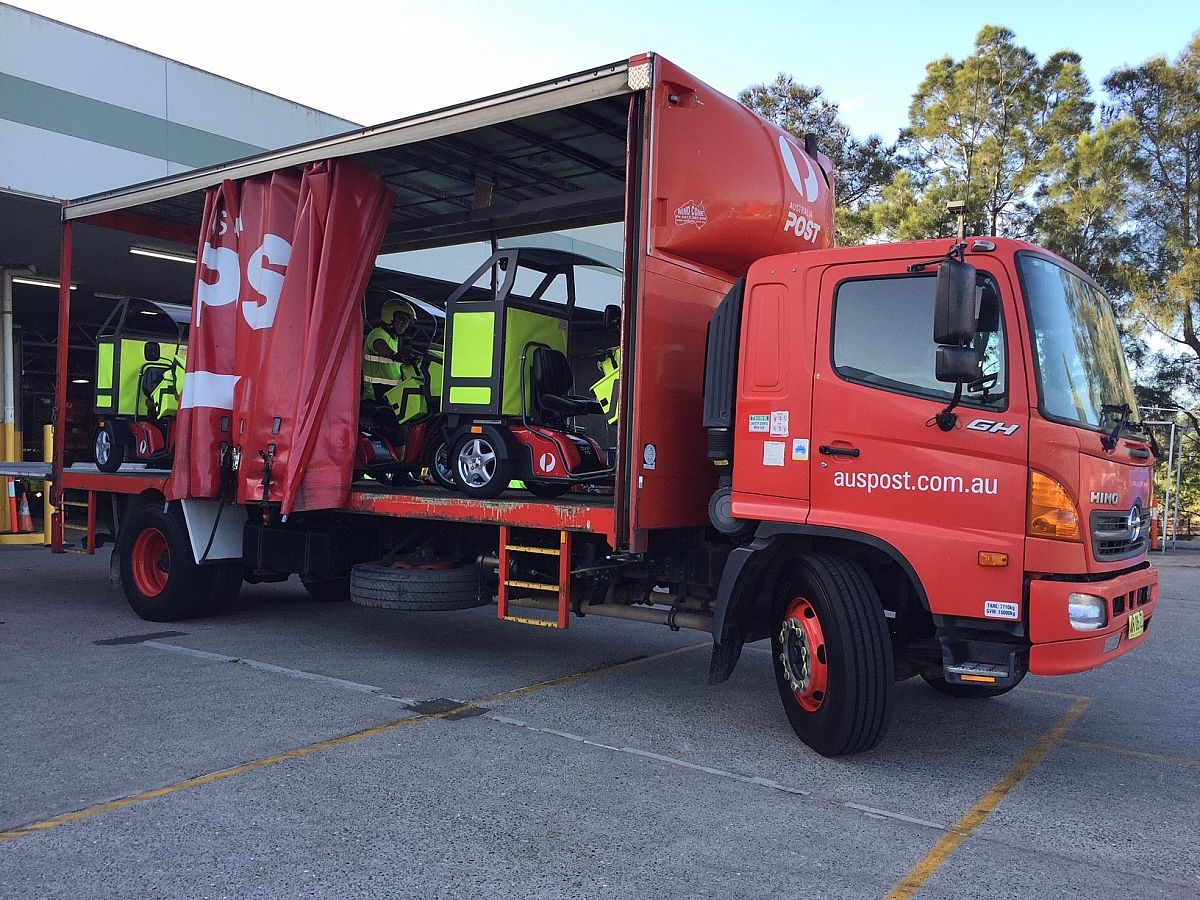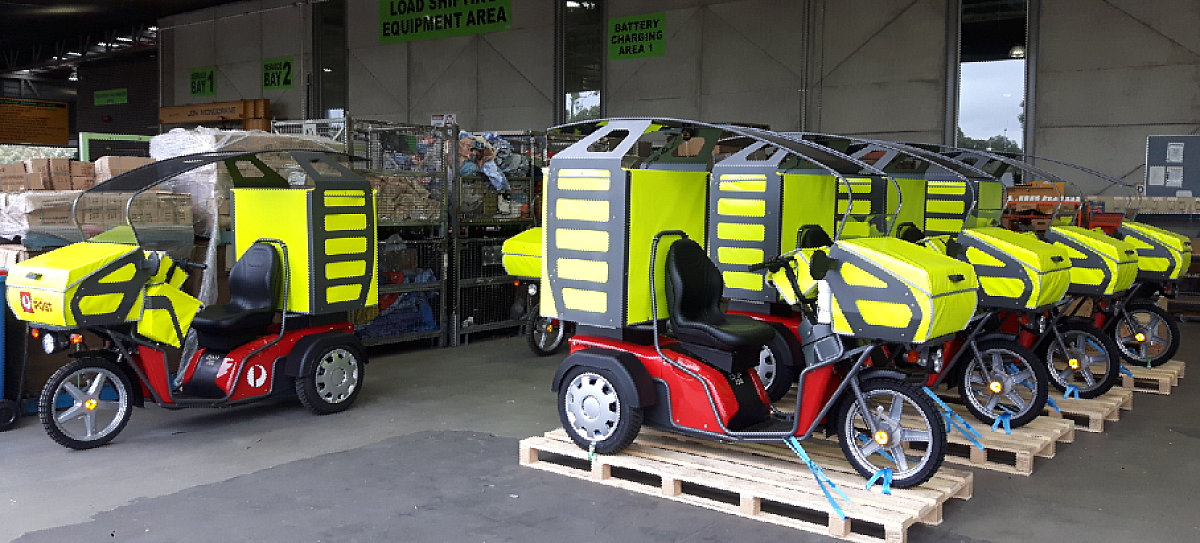We win Australia as a customer

I heard from a competitor that Australia Post is looking for new electric vehicles. They had tested just about everything on the market, but they were not satisfied with anything. I was interested in the challenge. Besides the postal service, the weather conditions were also very challenging. Torrential rain, heat of up to 50 degrees and, above all, very bad roads. I thought that the Australians I had met so far were quite relaxed and very pragmatic? Let's see...
At a postal fair in Hong Kong, a concrete opportunity arose: while strolling through the aisles, I came into contact with a group of Australians who introduced themselves as representatives of the Australian Post. I then invited their boss, Mitch, to our stand: 'I have something for you...' There I immediately described the numerous advantages of our fleet management, which is surely indispensable for such a large country?
Mitch was interested in fleet, but also in our DXP. The Post boss wanted to know if certain changes were possible? More suspension travel, for example, a reinforced chassis, a roof, or other stowage boxes? Letters are the same all over the world. Nevertheless, every post needs its own individual transport solutions. I promised assiduously to find the best solution for them with my team and Mitch was satisfied. We agreed that he would initially rent ten vehicles for a year and then decide on a fleet purchase. We now had to call on Wilf, our most experienced salesman, because even the first order analysis revealed many difficulties. Vehicles imported to Australia cannot be registered, except by the manufacturer himself - but only if he also had his own company... Consequently, we had to set up our own company locally. This turned out to be more difficult than expected, as we also needed a local director who had to take full responsibility. Wilf, together with our Claudia Fesch, found what we were looking for and we hired an Australian lawyer who took on just such assignments. At the same time, the vehicles were set up and we looked internally for a volunteer to oversee the project. Many came forward, but after in-depth discussions about the qualifications, only a few remained. So our Joris made a start: work permits had to be obtained, a building had to be found, a car had to be bought, tools, accommodation and a workshop had to be found and the latter had to be approved, which required some changes. A local bank account was also needed, which turned out to be an extremely difficult task. And then a tax advisor, which was equally challenging, as due to the size of the Swiss company KYBURZ, a proper audit had to be carried out.
In the end, Joris had assumed that he would instruct the drivers and repair small things. All the other work had simply not been on our radar beforehand. So Chris was hired - an American who had worked for the New Zealand Post for a long time, was responsible for the procurement of the vehicle fleet and therefore knew our DXP very well. Chris also kept in direct contact with the people he knew best in the postal service.
Wilf was also in Australia for a longer period to accompany the project. After more than a year of extensive testing, the Australian Post decided to buy the first 1,000 DXPs in the special Australian version. The joy was great, as was the work involved. Joris' assignment was completed and Flurin followed him, accompanying the introduction of the first vehicles, setting up a warehouse, looking after the Australian Post drivers and accompanying further extensive tests that Mitch imposed on our DXP. If our DXP did not perform optimally in any of the tests, Flurin would contact our developers directly to give them specific instructions on what to change. In addition, Flurin programmed software based on our ERP used in Switzerland to manage all spare parts, plan, perform and invoice service work on the vehicles.

Flurin was later replaced by Joel and his partner Jennie. They had to accept all the vehicles delivered by us after the long transport together with the customer, put them into operation, and train the drivers. Service partners had to be found and instructed to find quick and pragmatic solutions in case of problems. So Joel and Jennie built up a team and optimized all the processes. Then Josh and his wife Eliane took over, systematizing everything even better and hiring more Australian staff.
In the meantime, Australia Post already has over 3,500 of our vehicles in operation, and we are currently building new prototypes in Switzerland for extended use in the coming years. The project remains very exciting.
Lesson learned:
- Selling is one thing, setting up a company in a foreign country is quite another.
- Australians are very laid back, but not when it comes to safety and regulations.
- A lot of work and a very good team are necessary if a project is to be carried out successfully.
